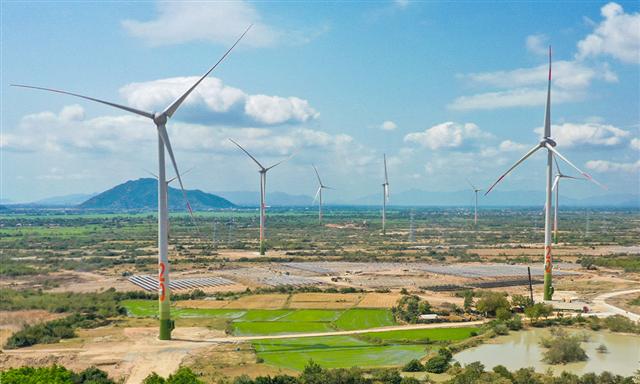Stronger Lao timber industry to create export opportunities
Stronger Lao timber industry to create export opportunities
Strengthening the Lao wood processing industry is part of the government's economic strategy to add value to the country's forest resources.
This was the message put across yesterday at a workshop on the development of the wood processing sector in Laos.
The workshop discussed the re-engineering and re-organisation of the sector with representatives of private companies.
Representatives of government agencies, the private sector, civil society and the National University of Laos discussed the results and recommendations of a study, prepared as part of the Lao EU-FLEGT process (Forest Law Enforcement, Governance and Trade) to further develop the wood processing sector in Laos.
Speaking at yesterday's workshop, Director General of the Department of Industry and Handicraft, Mr Manohack Rasachack, said the improvement of wood processing procedures was crucial to enhance the competitiveness of the Lao timber industry.
“This is the ‘entry ticket' generating new export opportunities within the Asean Economic Community and other export markets such as Europe, the US, Japan, and China for legal, high quality products,” he said.
“To achieve this, the supply of raw materials has to be improved, the qualifications of staff and workers in the wood processing industry have to be enhanced, the sector associations need to be strengthened, and individual companies need to get access to better markets and product information as well as improve their market access,” Mr Manohack added.
Senior International Adviser to the German Development Cooperation project ‘Support to the Lao EU-FLEGT Process' (ProFLEGT), implemented by the Deutsche Gesellschaft fur Internationale Zusammenarbeit (GIZ), Mr Heiko Worner, said the developed improvement plans for companies and the wood processing sector strategy, when implemented, would yield various benefits, even though only the most pressing issues have been addressed.
“The benefits include increased added value in the wood processing industry through down-stream processing, efficiency of the companies and international competitiveness, material yield, and awareness for and use of timber from legal sources, including the Chain of Custody procedures for supporting sustainable management of resources,” he added.
The final aim of strengthening the industry is to increase export opportunities for finished wood products as well as the creation and preservation of jobs.
ProFLEGT is a joint initiative of the Lao government and the German Development Cooperation.
It is working closely with the Ministry of Agriculture and Forestry (through the FLEGT Standing Office under the supervision of the Department of Forest Inspection), Ministry of Industry and Commerce, and Ministry of Natural Resources and Environment, as well as other government agencies, civil society organisations, academia, and the timber industry.
As part of the Action Plan on Forest Law Enforcement Governance and Trade to combat illegal logging globally, the EU is concluding Voluntary Partnership Agreements (VPA) with timber producing countries.
A VPA is an international trade agreement to reduce illegal wood harvesting and promote legal timber trade. Laos has started to negotiate such an agreement with the EU, with assistance from the GIZ.
In the framework of the VPA negotiation process, the need to strengthen the international competitiveness of Lao wood processing companies has been identified by the Lao government as an important requirement to achieve any relevant impact for the forestry sector through this trade agreement.














